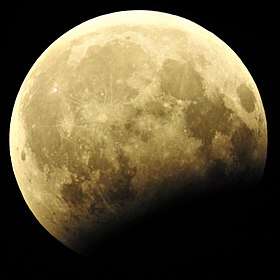June 1946 lunar eclipse
A total lunar eclipse took place on June 14, 1946. The moon passed through the center of the Earth’s shadow.
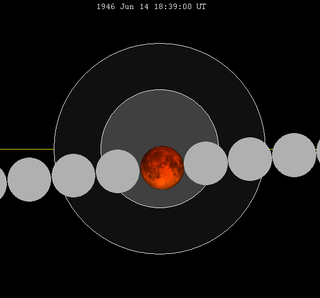
Visibility
It was completely visible over South America, Europe, Africa, Asia, Australia, seen rising over South America, Europe and Africa and setting over Asia and Australia.
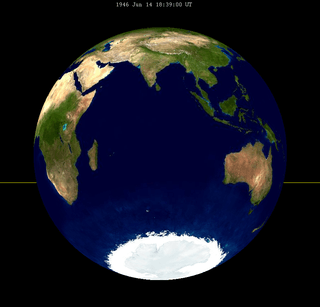
Related lunar eclipses
Lunar year series
| Descending node | Ascending node | |||||
|---|---|---|---|---|---|---|
| Saros | Date Viewing |
Type Chart |
Saros | Date Viewing |
Type Chart | |
| 109 | 1944 Jul 06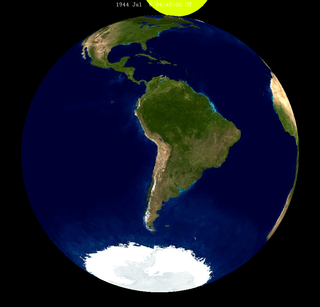 |
Penumbral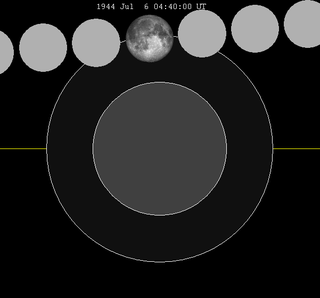 |
114 | 1944 Dec 29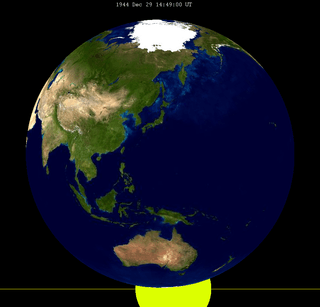 |
Penumbral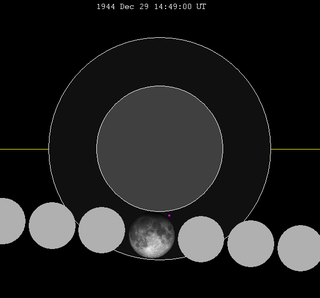 | |
| 119 | 1945 Jun 25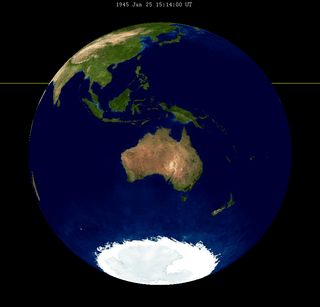 |
Partial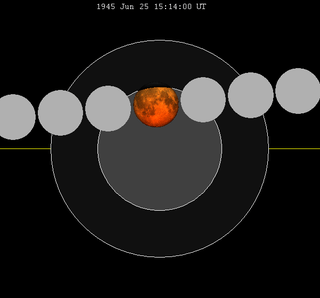 |
124 | 1945 Dec 19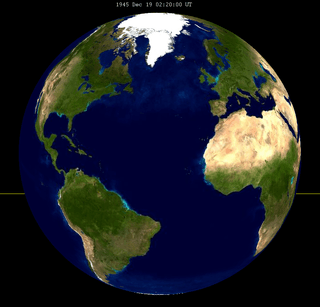 |
Total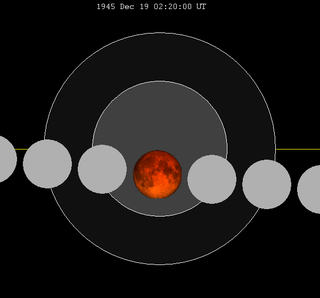 | |
| 129 | 1946 Jun 14 |
Total |
134 | 1946 Dec 08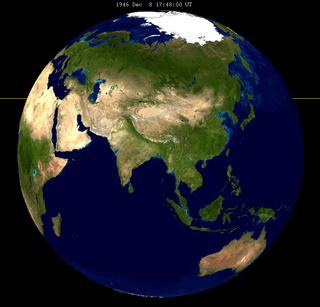 |
Total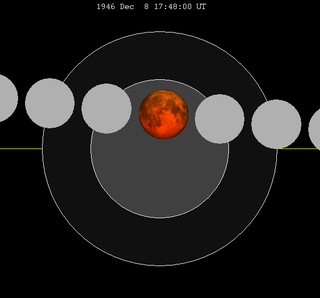 | |
| 139 | 1947 Jun 03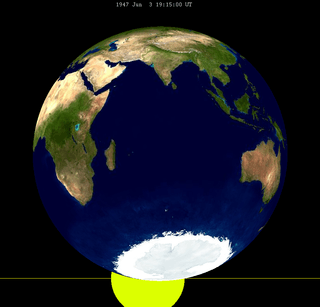 |
Partial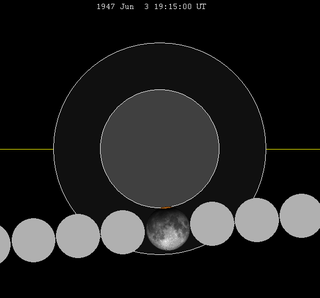 |
144 | 1947 Nov 28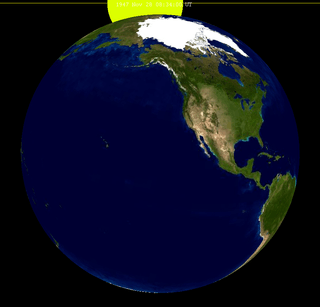 |
Penumbral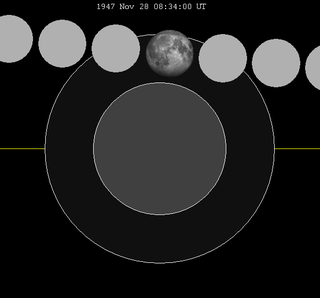 | |
Saros series
Lunar saros series 129, repeating every 18 years and 11 days, containing 71 events, has 11 total lunar eclipses. The first total lunar eclipse of this series was on May 24, 1910, and last will be on September 8, 2090. The two longest occurrence of this series were on July 6, 1982 and July 16, 2000 when totality lasted 106 minutes.
| Greatest | First | |||
|---|---|---|---|---|
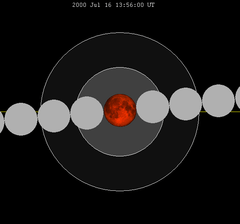 The greatest eclipse of the series occurred on 2000 Jul 16, lasting 106 minutes. |
Penumbral | Partial | Total | Central |
| 1351 Jun 10 | 1513 Sep 15 | 1910 May 24 | 1946 Jun 14 | |
| Last | ||||
| Central | Total | Partial | Penumbral | |
| 2036 Aug 7 | 2090 Sep 8 | 2469 Apr 26 | 2613 Jul 24 | |
| 1910 May 24 | 1928 Jun 3 | 1946 Jun 14 | |||
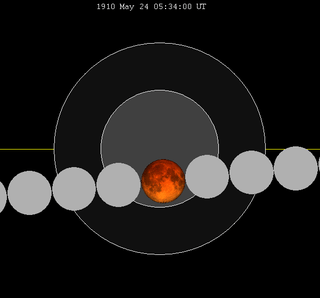 |
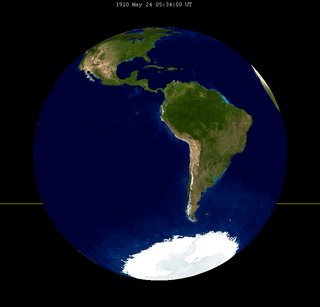 |
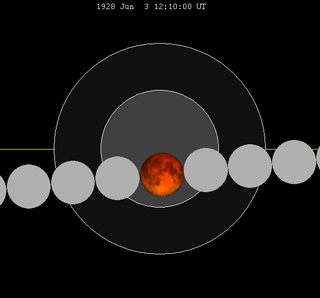 |
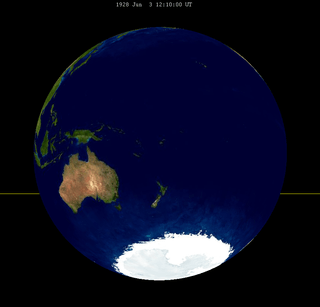 |
 |
 |
| 1964 Jun 25 | 1982 Jul 6 | 2000 Jul 16 | |||
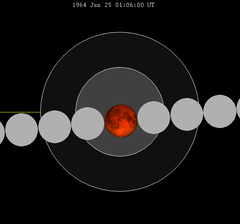 |
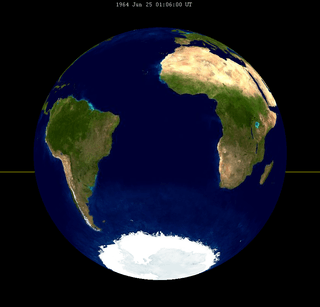 |
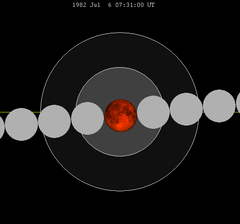 |
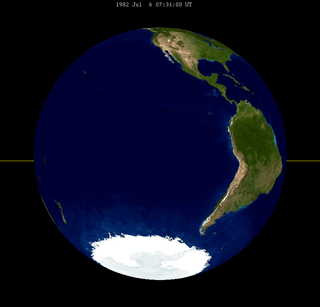 |
 |
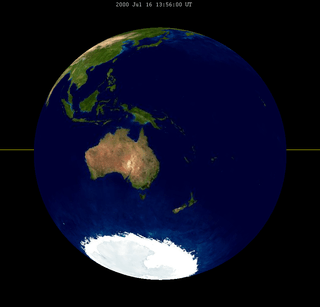 |
| 2018 Jul 27 | 2036 Aug 7 | 2054 Aug 18 | |||
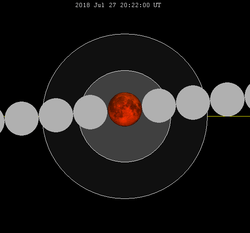 |
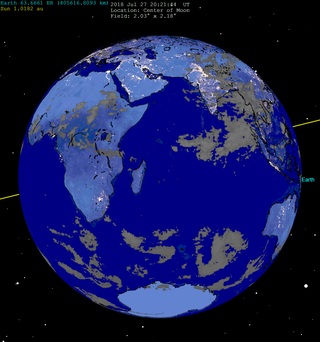 |
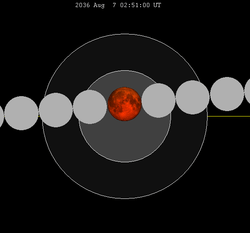 |
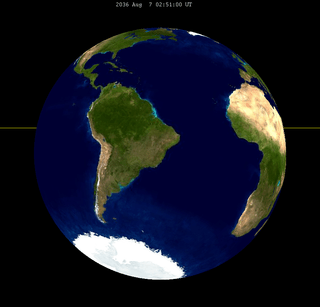 |
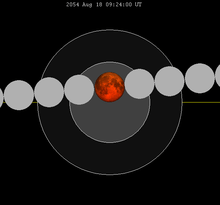 |
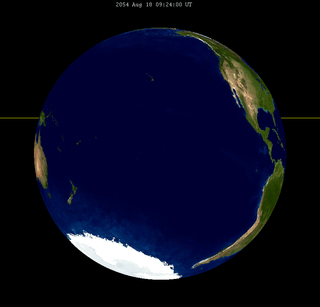 |
| 2072 Aug 28 | 2090 Sep 8 | ||||
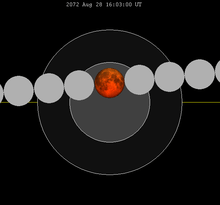 |
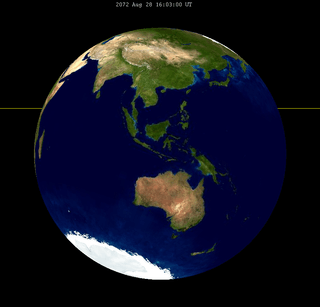 |
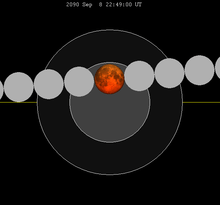 |
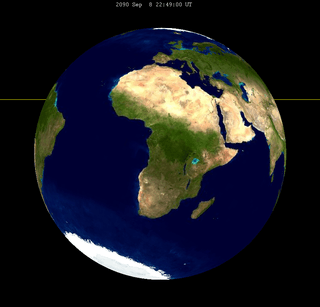 | ||
It last occurred on June 3, 1928 and will next occur on June 25, 1964.
This is the 34th member of Lunar Saros 129. The previous event was the June 1928 lunar eclipse. The next event is the June 1964 lunar eclipse. Lunar Saros 129 contains 11 total lunar eclipses between 1910 and 2090. Solar Saros 136 interleaves with this lunar saros with an event occurring every 9 years 5 days alternating between each saros series.
Half-Saros cycle
A lunar eclipse will be preceded and followed by solar eclipses by 9 years and 5.5 days (a half saros).[1] This lunar eclipse is related to two total solar eclipses of Solar Saros 136.
| June 8, 1937 | June 20, 1955 |
|---|---|
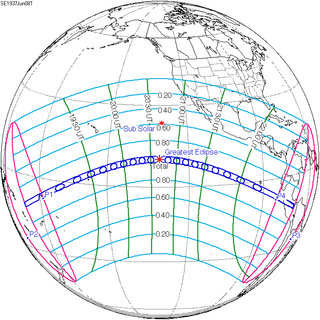 |
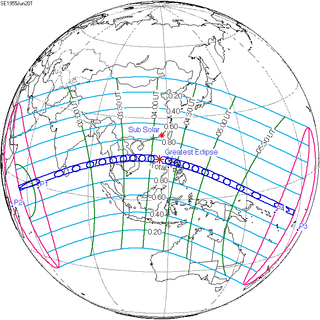 |
See also
- List of lunar eclipses
- List of 20th-century lunar eclipses
Notes
- Mathematical Astronomy Morsels, Jean Meeus, p.110, Chapter 18, The half-saros
